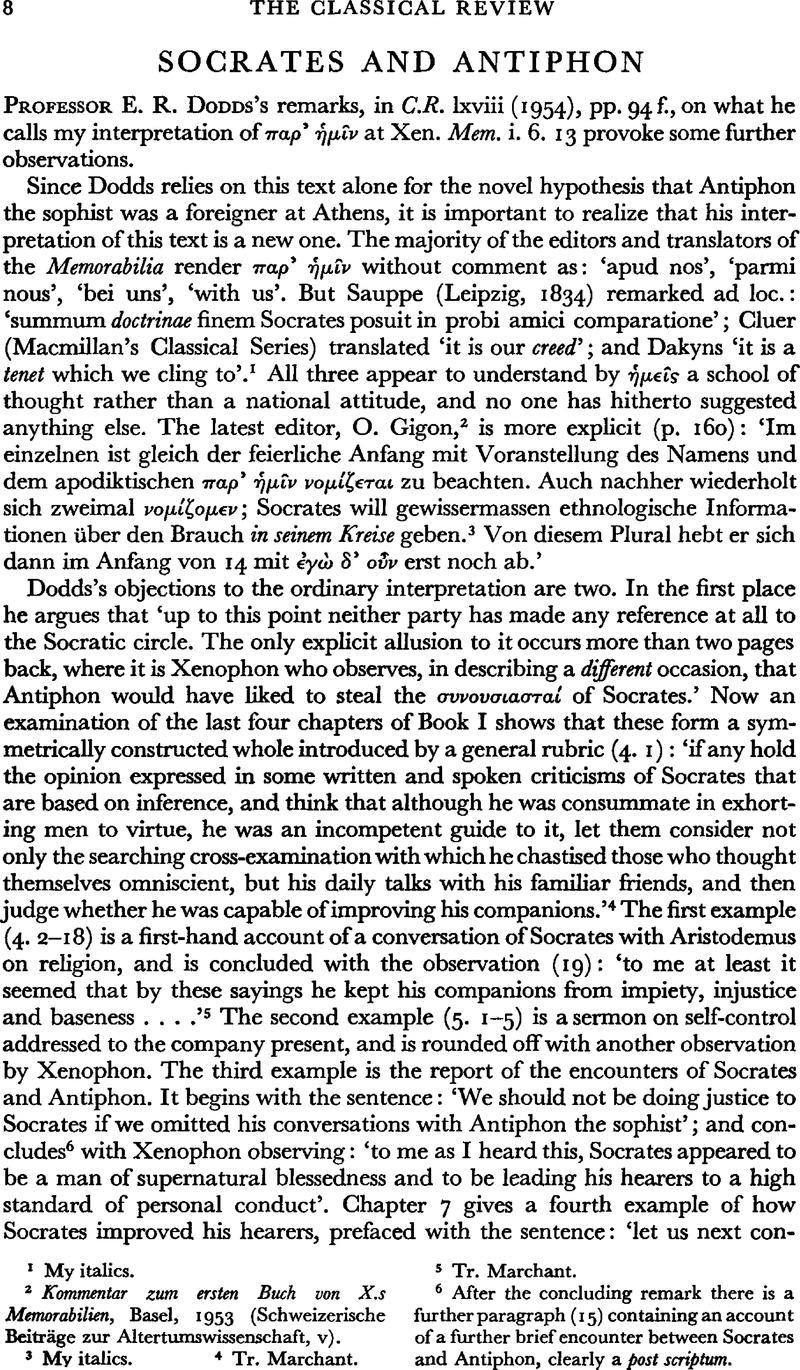Published online by Cambridge University Press: 13 February 2009

page 8 note 1 My italics.
page 8 note 2 Kommentar zutn ersten Buck von X.s Memorabilien, Basel, , 1953 (Schweizerische Beiträge zur Altertumswissenschaft, v)Google Scholar.
page 8 note 3 My italics.
page 8 note 4 Tr. Marchant.
page 8 note 5 Tr. Marchant.
page 8 note 6 After the concluding remark there is a of a further brief encounter between Socrates and Antiphon, clearly a post scriptum.
page 9 note 1 Described as Socrates' συνου⋯α by Plato, , Symposium 173 bGoogle Scholar.
page 10 note 1 See Denniston, , Greek Particles, p. 463, ii (1)Google Scholar.
page 10 note 2 ![]() (cf.
(cf. ![]() below). This appears to give the grounds for the association, in contrast to the ‘cash nexus’ in the proother kinds.
below). This appears to give the grounds for the association, in contrast to the ‘cash nexus’ in the proother kinds.
page 10 note 3 Surely in both cases we have Socratic εἰρωνε⋯α.
page 10 note 4 Taylor, , Plato, p. 225Google Scholar: ‘To all intents and purposes, we shall not go wrong by treating the “speech of Diotima” as a speech of phrase Socrates.’
page 10 note 5 If, as I believe, the opinion of ⋯μεῖς is identical with the doctrine of Socrates proother pounded in the succeeding sentence, there is corroboration for both in Plato, , Lysis 211 d ffGoogle Scholar.
page 11 note 1 Aus Platos Werdezeit, 1913, pp. 394 ff.
page 11 note 2 Plato, Theaet. 151 e, 152 a, 167 c.
page 11 note 3 Plato, , Symp. 181 aGoogle Scholar.
page 11 note 4 Bury, R. G., Symposium of Plato, 1909, p. xxviGoogle Scholar.